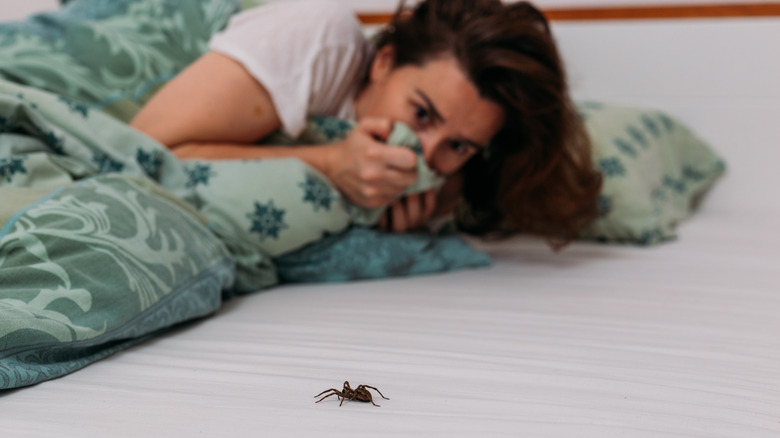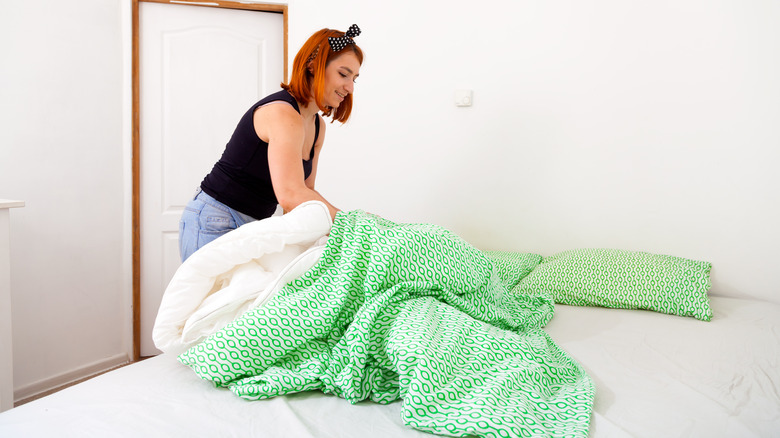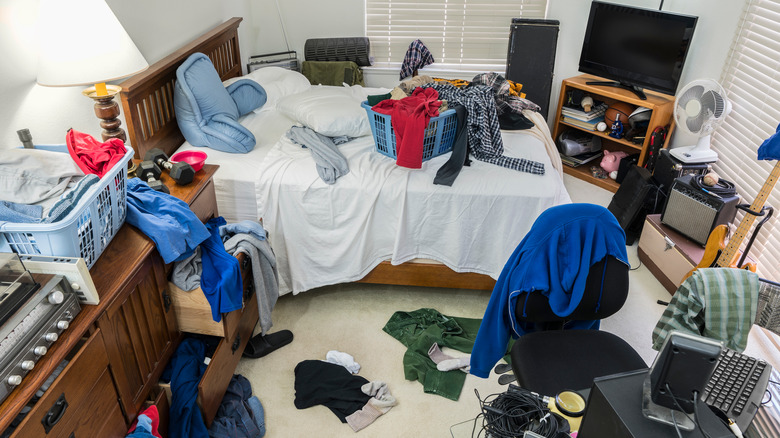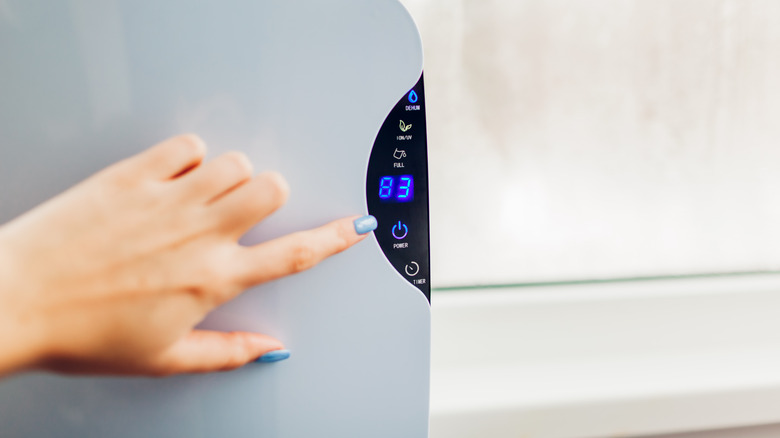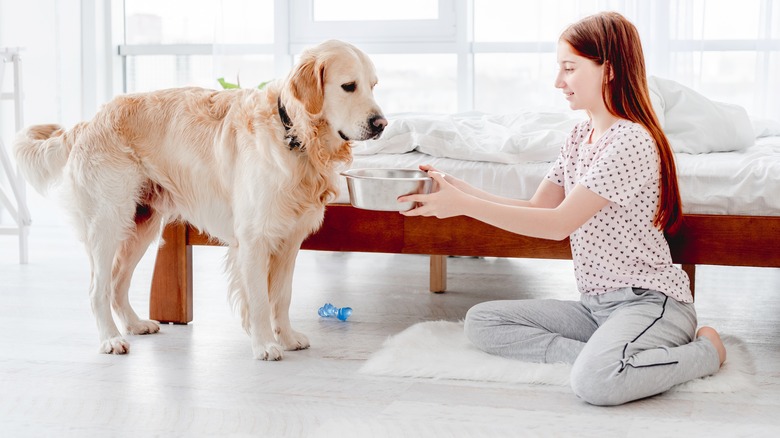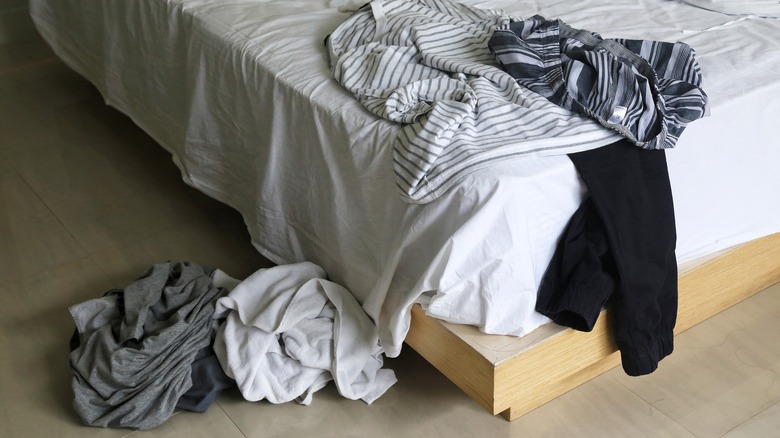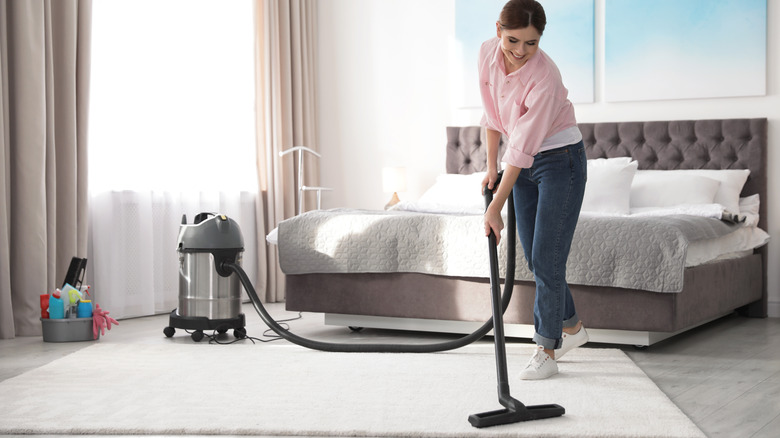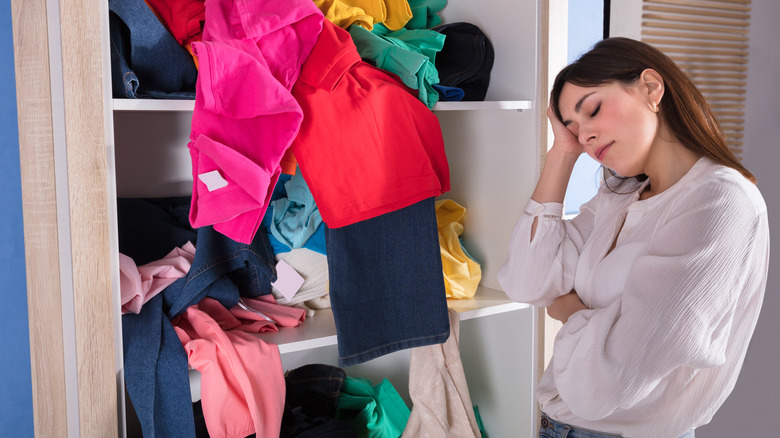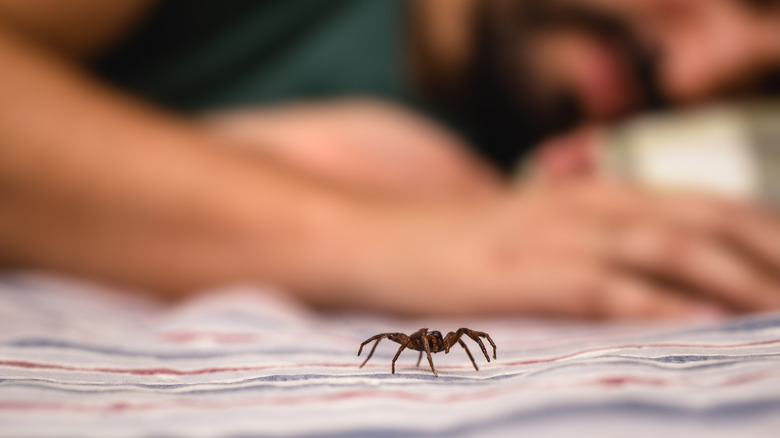Sneaky Reasons Why You're Finding Pests In Your Bedroom
Can you still see pests creeping around your bedroom floors or walls despite your best efforts? This is frustrating, and while having pests in your home might be common, you may not understand the exact reasons why you have trouble moving them on. Whether you have a dirty pile of laundry on the floor or crumbs under the bed, these make good food sources, making your bedroom the perfect place for pests to live.
Many of your seemingly innocent or slightly messy habits can draw pests to your bedroom. This is a problem because having pests in your space is bad for your mental and physical health. They can bite, carry diseases that make you sick, and keep you anxiously looking around when you're supposed to relax.
Understanding the sneaky reasons you might have pests in your bedroom will help you turn things around. Once you know what habits you need to change, this will make your bedroom less inviting to the creepy crawlies. You'll get a pest-free zone perfect for relaxing and unwinding every day.
You have unwashed bed linens
How often should you wash your bedding? Do you strip it on a schedule or go until you can't remember the last time you washed it? Dirty bedding attracts pests because sweat, skin flakes, and body oil build up and these residues make the perfect home for bed bugs, dust mites, and beetles. They act as an ongoing food source for these pests and give them a humid and warm environment that many prefer to use for shelter and reproduction. If you don't regularly wash your bedding, the organic materials tell the pests that it's a reliable food source, and you'll have huge issues getting rid of them when they settle in.
To kick pests out, strip your bed and wash it at least once every two weeks. You can put the washed pillowcases, duvets, and sheets back on or swap them with a new set. Turn your washing machine to hot water for the wash cycle to kill any pests in the bedding. Hot water is also better at removing skin flakes, oil, and sweat. After washing the bedding, dry it thoroughly in the hottest setting recommended by the care instructions. Remember, pests are more likely to return if the sheets feel damp. If you're not going to put them right back on your bed, put them in sealed bags or totes and store them in a dry, clean space.
The bedroom is cluttered
Pests love clutter. One of the biggest reasons for this is that clutter lets them hide in plain sight. Everything from rodents to spiders to cockroaches looks for warm places where they can live without being disturbed. Stacks of books, clothing piles, and small collections on the floor or furniture make a sheltered maze that stops you from noticing them. Things like clothing or fabric give them darkness, warmth, and sometimes moisture, allowing the population to explode. Clutter also catches crumbs and dust, and this feeds your unwelcome visitors. If your bedroom offers these things, you'll have difficulty getting rid of them.
To tackle clutter, you'll have to motivate yourself to do a few things, and the biggest ones are organizing everything and cleaning up. To start, make a keep, discard, and donate pile and sort your items to make cleaning more manageable. Consider adding a few storage solutions to help keep you organized. Under-bed storage, closet organizers, and shelves will keep things up off the floor. Also, get in the habit of cleaning every week. Dusting and vacuuming help eliminate potential food sources and find nesting grounds early. Try to keep the clutter to a minimum and store your items correctly to make cleaning easier.
Your indoor plants harbor pests
Your houseplants can attract pests that sneak in and attack your plant before you know they're inside. Overwatering your houseplants sets the stage for fungal and mold growth, and fungus gnats will eat it. Neglecting your plants makes them weaker and causes stress, and packing them all in one spot doesn't let air circulate around them, trapping moisture. These simple mistakes will draw mealybugs, aphids, and spider mites into your bedroom looking for food. Along with damaging your plants, they can slowly end up in other areas. If your plants start to die and you see bugs, this is a clue that there's something in your bedroom that makes it easy for them to thrive.
One of the best things you can do is inspect your plants every week or so. When you do, carefully look under their leaves and around the soil because this is where most pests hide. Cut back on your watering schedule and check if the top 1 or 2 inches of soil are dry before adding more. Put a few inches between each plant so air can flow around them and check for good ventilation. Take infected plants to an isolated spot so they can't infect your healthy ones and apply neem oil or insecticidal soap until you kill the bugs.
You eat food in the bedroom or let trash build up
Do you eat in your bedroom before you go to sleep? Maybe you have coffee in the morning and drip sticky spills. Either way, sugary sweets or crumbs give pests a feast, including ants, cockroaches, and rodents. Any garbage you leave is a pest shelter and food source, so they come in. They'll use the garbage as a nesting spot and the food to reproduce, boosting the pest activity in your space.
Keep food in the kitchen to reduce the risk of accidentally drawing pests into your home. If you take anything in the bedroom, toss it in the trash when you finish and wipe up spills. Vacuum the floor, making sure to get under the bed and behind dressers to pick up the crumbs, and use a damp rag to wipe sticky residue away. Pick up trash you accidentally drop on the floor as quickly as possible. If you have a garbage can, make sure it has a lid to stop odors from coming out, and take the bag out at least weekly. It's also a good idea to completely clean the bedroom once a week so dust doesn't build up with food particles.
There is moisture and high humidity in the room
Cockroaches, silverfish, and other mites love humid spaces with a lot of moisture. These conditions make it ideal for them to breed and live because it gives them easy access to water. If you have leaking pipes or any type of water damage, it'll boost the moisture level in your bedroom, and this creates damp pockets you may miss where pests live. Also, higher humidity levels set the stage for mold and mildew growth, drawing bugs into the area that eat it. Poor ventilation and unresolved water leaks create the perfect environment for these pests, and they can be hard to spot until your bedroom is overrun.
Getting rid of the water and lowering the humidity in your bedroom will help solve the problem because pests don't like dry spots. A dehumidifier is an excellent way to make the air less humid and moist. Ventilation is also crucial; the goal is to get air circulating around and through your bedroom to keep it dry and comfortable so pests can move on.
There is pet food or litter in the bedroom
Storing pet food or litter in or by your bedroom is like ringing a dinner bell for pests and bugs. Pet food draws ants, roaches, and rodents, including dry or wet foods. They also like kitty litter because it has an odor and organic waste they can eat if you don't clean it. Once the pests find a steady food source, they're more apt to build nests in corners or under the bed to reproduce without having to go far to eat. Along with being annoying, rodents can quickly spread diseases or make your allergies worse if they hang around.
To stop pests from getting into your kitty litter or pet food, get airtight storage containers for the food and put the food inside as soon as you bring it home. This locks the smells in and makes it hard for pests to find them. Store your pet food and litter out of the bedroom so the bugs don't wander in, and clean the litter box at least once a day to keep waste and smells from building up. It's also a good idea to put the litter boxes in spaces that are easy to clean and out of the bedroom, like in utility rooms or bathrooms.
There are piles of dirty laundry laying around
Pests like mites, bed bugs, and moths like to live in areas where they can get into piles of dirty clothing, especially if it's on the floor. They get drawn here from the smells, body oils, and skin flakes that cling to the clothing. Since this acts like food, it's the perfect spot to make a nest and reproduce. These spaces also tend to be damp and warm, and this is an ideal environment for them to thrive. For example, bed bugs love dirty piles of clothing because they can smell the scent you leave, and they use this information to find hiding spots close to their human hosts.
You'll want to take a structured approach to help manage your laundry and reduce the chances of pests coming in. One great thing you can do is put your clothing in sealed bins or bags to keep it contained when you're not wearing it. Get in the habit of washing your clothing regularly and use hot water with the highest dryer setting the fabric can handle to kill any clinging pests and their eggs.
You don't clean your carpeting
Carpets come with dense fibers, and this makes the perfect home for fleas, bed bugs, dust mites, silverfish, and some beetles to thrive. Pests get drawn to your carpeting because it's safe and warm, and your carpet will collect gross things over time, including hair, dead skin cells, and food particles that the pests eat. The fibers are also an excellent place for fleas to lay eggs because they can safely hatch unnoticed. If you don't do anything, this turns your carpet into a pest paradise where the population will explode. Dust and dead skin cells can also float into the air when you walk on the carpet, which is bad for allergies and asthma.
Keeping your carpets and rugs clean is vital for getting a healthier home. By removing their food sources or the pests themselves, you make it harder for them. Start by vacuuming with a machine with a HEPA filter system at least once weekly to pull as many bugs as possible. You should also consider scheduling professional-grade carpet cleaning and learn how often to clean your carpets to remove the pests and their eggs. Professionals use steam cleaning a lot of the time, and this gets deep into your carpet's fibers to strip out bugs, dirt, and potential food.
You don't seal and store seasonal clothing correctly
People swap out their seasonal clothing to make room in their closets, but they fall short when storing the items they aren't wearing. Cotton, wool, and silk fibers can all fall prey to being pest food if you're not careful. You'll find these fibers in winter clothing and seasonal items, and pests are more interested in them if they have sweat, body oils, or food particles on them. Moths will lay eggs on the clothes, which the young will eat as they hatch – especially if they are animal-based fabrics like leather or wool. They can do a huge amount of damage to your clothing in a very short period. Pests love to live, breed, and do damage in the dark, undisturbed closets and drawers in your bedroom.
So, if you don't store your seasonal items correctly, they can turn into pest food and hiding spots. To stop this, wash your clothing well before you store it. Pop your items into vacuum-sealed containers or bags that create a barrier for the pests to prevent an infestation. Hang moth repellents like lavender sachets or cedar blocks in your closet or slip them into your drawers to keep moths and fabric-eating bugs away. Also, routinely clean, organize, and check your storage area so you can see pest activity right when it starts.
You brought in used furniture
While picking up used pieces of furniture is a great way to save money, pests can hitch a ride right into your home and bedroom. For example, bed bugs love to hide in furniture gaps and cracks, and it's hard to see them unless you're actively looking. Even though bed bugs are one of the most feared pests, mites, fleas, and beetles can also live comfortably in used furniture.
Before you bring your used furniture finds into the bedroom, carefully give everything a once over and look for pest activity. Check for live bugs, eggs, droppings, or marks you can't explain, especially in the furniture joints, gaps, and dark cracks or corners. Call a local pest control company and have them come to your house and treat the pieces before you bring them inside to help reduce the chances of running into issues. However, if this isn't in your budget, put the furniture into the garage and isolate it for a few days to watch for pests before bringing it into the home or bedroom.
The spiders are following the bugs
Why do spiders like the bedroom and how do you prevent them from getting comfortable? Unfortunately, they creep into your bedroom looking for food. Other pests like mosquitos, flies, moths, and cockroaches are food sources to spiders, and the spiders will follow them. Spiders are more likely to stick around a place with a steady food supply, so if you have many pests in your bedroom, it won't be long before the spiders appear. Even though they're great for helping keep the insect populations low, finding them running under the bed or climbing the wall can be scary.
Blocking the spiders from getting to the food is the best way to ward them off. Keep your room clean, for starters, because this reduces the chances of bugs making their home in your bedroom. Essential oils like peppermint or tea tree are a harmless way to keep pests out without using harsh chemicals or pesticides. It's better for spiders and other pests if you dust and vacuum at least weekly, including in corners, under furniture, and by any webs. This makes your bedroom much less appealing, and you can use caulk to seal any crevices, cracks, and entry points so spiders and bugs can't slip in from outside.
